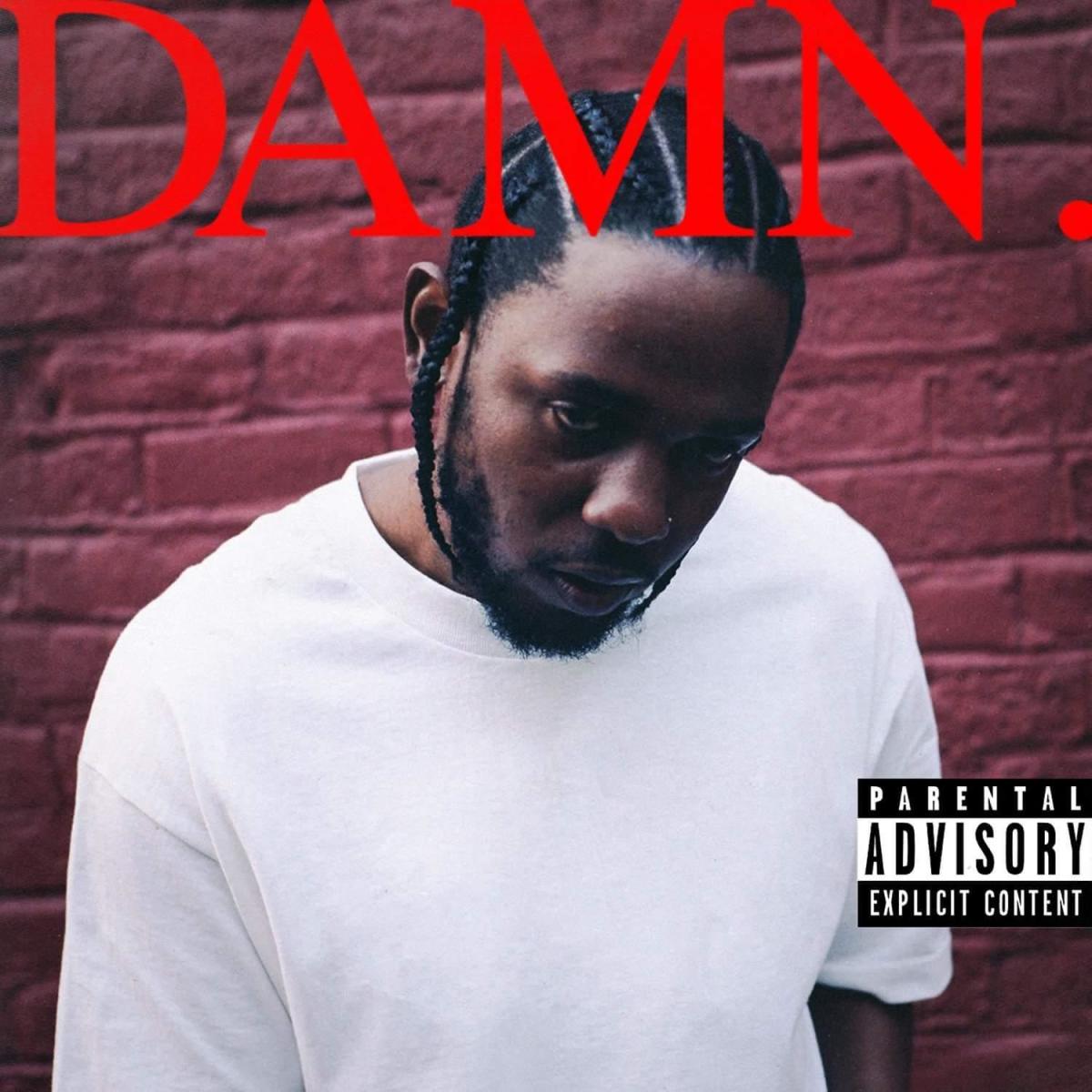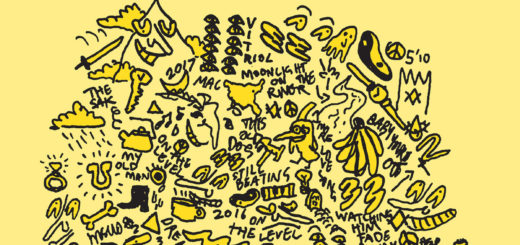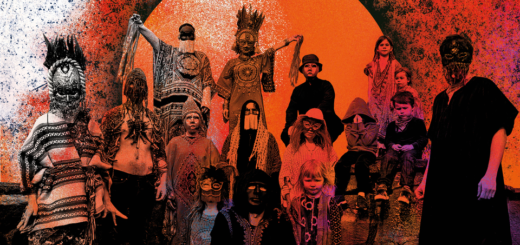DAMN. by Kendrick Lamar

Genre: Conscious Hip Hop
Favorite Tracks: “DNA.,” “YAH.,” “FEEL.,” “HUMBLE.,” “FEAR.,” “DUCKWORTH.”
It seems as though Kendrick Lamar will never stop bearing the burden of playing the messiah. Kendrick, a man of conflicted but deep faith, wouldn’t call himself the second coming of Christ, but he has positioned himself as the King and savior of hip hop, and his crown will probably always weigh heavy. The real trouble with being on top, with being an all time great, isn’t the people who come directly for your throne; it’s all the people who come to depend on you for salvation, and then feel damned when the salvation you offer doesn’t match their wildest expectations.
Intentionally or unintentionally, Kendrick Lamar disappointed a certain subsect of his fanbase this weekend by failing to raise himself from the dead and literally becoming Christ. It all started when Sounwave, one of the producers of DAMN., tweeted a picture of Morpheus from THE MATRIX and the internet took the metaphor way too far. (As it is wont to do.) Essentially, fans and amateur sleuths concocted a fairy tale in which Kendrick released DAMN., an album in which he dies, on Good Friday, only to follow it up with a second full length album, in which he is reborn, to be released on Easter Sunday. There was a lot of speculation about the fact that DAMN’s album cover is in red, representing Hell/the red pill/the Bloods, and that the hypothetical follow-up album would be blue, representing salvation/the blue pill/the Crips. It was all pretty exciting to fantasize about. I’m writing this on Tuesday evening, a full 48 hours after Easter, and can safely say that K. Dot’s follow up isn’t coming; he won’t be our savior, at least not in the specific, narratively satisfying way the internet was hoping he would be. Yet again, we’ve found our collective expectations smashed against reality.
This whole phenomenon was fascinating to watch play out because not only was it intoxicating to consider, but also for what it implicitly said about the collective reaction to DAMN. as an album. What the internet practically screamed within hours of consuming DAMN for the first time was: “this is not enough, this was not what we were hoping for, we want more.” It’s as if Kendrick came down from Mount Sinai only to have the Ten Commandments trampled on by an overzealous people. DAMN. didn’t feel as immediately Earth-shattering and life-changing as TO PIMP A BUTTERFLY, and as a result, the culture seemed to react with either pithy disinterest or rabid denialism, both of which failed to really engage with DAMN as it asks to be engaged with.
Comparing Kendrick to Moses on this album feels apt, since near the beginning, he declares: “I’m an Israelite, don’t call me black no mo’.” No one should have expected Kendrick to stay in one place ideologically for the past two years, but this suggests an incredibly radical shift in the way Kendrick views himself and views the experience of being black. It’s not a refutation of the views expressed on TO PIMP A BUTTERFLY, but more the continuation of those views. On tracks like “The Blacker the Berry” and “i,” Kendrick defiantly and proudly wrestled with his identity, in the face of all the cultural and political barriers placed in front of him and all the people like him. DAMN. sees Kendrick viewing his skin color in a new light, as a member of the Lost Tribe of Israel. DAMN. isn’t about Kendrick fighting to succeed in the struggle for black liberation, DAMN. is about Kendrick trying to transcend the struggle on Earth to find a spiritual answer as to why black people seem condemned to suffer in the first place. From there, he wants to try to answer what a mortal man can do about it.
He really delves into this on “Fear,” a track about all the fears still gripping black people in 2017. It starts off with a phone call from his cousin, reading from Deuteronomy 28:28, claiming God has cursed the Lost Tribe of Israel until they find Him again. From there, the track depicts the fears of growing up in a black home in America, where the threat of a beating from one’s parents was always present, to describing his own fears at the age of 27, when he was an ostensibly successful musician, to his fears today. The whole point of the track is that fear and pain are generational and universal within the black experience, and that they’re what in some ways prevent Kendrick and his people from following the word of God and keep them in a cycle of damnation.
This all sounds like heavy and heady stuff, and it is, but superficial listens to DAMN. might cause the listener to think of this as Kendrick’s “pop” album. Naysayers have already written the record off as Kendrick’s attempt to sound like Drake, or to at the very least appeal to a more “low brow” mainstream audience. I have to imagine that the fans who will write off this album for not being the impenetrable tapestry of jazz fusion that made up TO PIMP A BUTTERFLY were some of the same fans who desperately wanted the mythical second record to drop on Easter. Yet, on even the most ostensibly pop tracks on this album, Kendrick delivers a message consistent with everything he has done so far. On “Loyalty,” a track he shares with Rihanna, he asks: “Tell me who you loyal to / Is it money? Is it fame? Is it weed? Is it drink?,” seemingly a continuation of his, “if shit hit the fan, is you still a fan” mantra from “Mortal Man.” The difference is that the message of “Loyalty” is delivered in a hook-driven, fun song rather than a 12 minute magnum opus. There’s no denying that DAMN. is Kendrick’s attempt to appeal to a wider audience, but that doesn’t mean there’s been dilution of his overall message.
See, there was an inherent flaw in TO PIMP A BUTTERFLY’s conception. Creating a masterful, dense, and complex work meant that it almost immediately was separated from the very culture that gave birth to it. That album is undeniably important, but that importance carries with a weight, a weight that is too daunting for the casual listener to take on lightly. There’s a sense when one listens to TPAB that the album must be carefully scrutinized and studied, like a sacred text that has to be taken Very Seriously. DAMN. for the most part sheds that weight; Kendrick works with Mike WiLL Made It, 9th Wonder, the Alchemist, and more to create an album almost as long as TPAB, but inherently more easily consumable. Tracks like “Humble” and “DNA” follow a lot of the same thematic paths Kendrick has gone down before, but over beats that are immediately gratifying.
That’s not to say that this record is a pure bullseye, by any means. DAMN. is riddled with tracks that either feel tepid or unfocused. When Kendrick and his fleet of producers aren’t delivering massive hooks, the record becomes pretty dull, particularly on “PRIDE.” and “XXX. (featuring U2).” The chord progression on “PRIDE.” is so laid back it lulls the listener to sleep, and the whole track seems to be filler to provide a respite between the bangers “LOYALTY.” and “HUMBLE.” The worst offender on the whole album by far, however, is “XXX.” It’s difficult to feel like Kendrick’s message is still all that radical when he’s teamed up with Bono, the purveyor of such brilliant activism as “buy a red iPod and cure AIDs or whatever.” U2 represents the pinnacle of faux white liberal outrage, and Kendrick’s decision to collaborate with them feels like a huge misstep, especially since the track is also garbage. (Seriously, what is this song about? Did U2 write a completely separate song that just got cut and pasted into Kendrick freestyling?)
None of these criticisms ultimately matter, though. Truth is, Kendrick is a man of such enormous artistic ability, he doesn’t have to keep rapping at all. He could write novels that no doubt would be astonishing, he could make films, he could be a stand up like his hero Richard Pryor, who knows. But he chooses to keep rapping, and maybe he does it partially because that’s the medium that made him famous, but the evidence seems to point more towards the idea that he wants to reach the people who really matter to him. He wants to reach the young black men like himself and teach them to see themselves differently. If an epic ode to all that black art and black culture has brought to the world was not enough, Kendrick was willing to damn himself (oh yeah, he dies at the beginning of the album, and brings himself back to life at the end) and make a more accessible album just to be sure that his message gets heard. Gets heard by the right people, that is. Truth is, Kendrick didn’t need to make another record that got appropriated by overeducated white dudes like me with liberal arts degrees, he needed to make a record that got to the kids from his own neighborhood and beyond.
I can’t really blame fans for wanting Kendrick to perform a miracle and deliver the spectacle of a second album and truly feed into the mythos of him as the messiah. After all, on BUTTERFLY, he managed to raise Tupac back from the dead, it seemed only natural that Kendrick would need to stage an even more epic display of his power to top himself. It’s a shame though, because those fans are missing the profound message already waiting for them on “DUCKWORTH.,” the end of DAMN. “DUCKWORTH.” tells the story of the two most important men in Kendrick’s life: his father, Ducky, and Anthony “Top Dawg” Tiffith, the founder of Kendrick’s label, Top Dawg Entertainment. The song is about how, decades ago, when these two men were strangers in Compton, Anthony was planning to rob the KFC Ducky worked at, but chose not to because Ducky treated Anthony with kindness and respect. As a result, Anthony didn’t go to jail, Ducky raised Kendrick, Anthony started Top Dawg, and Kendrick was able to sign to Top Dawg.
It’s an amazing story, but the way Kendrick frames the story is what’s really spectacular:
“Pay attention, that one decision changed both of they lives
One curse at a time
Reverse the manifest and good karma, and I’ll tell you why
You take two strangers, and put ’em in random predicaments; give ’em a soul
So they can make their own choices and live with it
20 years later, them same strangers you make ’em meet again
Inside recording studios where they reapin’ their benefits
Then you start remindin’ them about that chicken incident
Whoever thought the greatest rapper would be from coincidence?
Because if Anthony killed Ducky
Top Dawg could be servin’ life
While I grew up without a father and die in a gunfight”
Here, Kendrick posits one of the central tenets of Judeo-Christian faith and puts it in the context of gangster rap. He says that Anthony and Ducky both had souls and therefore had the free will to choose what to do with their lives. Both could have made different choices and both could have ended up ruining the chance for someone like Kendrick to become who he is today. But their simple choices to do the right thing ended up reaping them rewards they couldn’t have even imagined in the form of Kendrick and TDE’s wealth and success. What Kendrick is saying here is that despite adverse conditions, despite all that black people are born into unjustly, free will and the ability to choose to act righteously can still be possible, liberation for all Israelites born into struggle is possible. Jesus couldn’t have delivered a better parable himself.
It makes sense that people wanted Kendrick to be their messiah for 72 hours. Waking up every day can feel like a step further towards damnation. When we live in a culture so heavily layered in hero myths, in stories of Great Men taking up the mantle and saving humanity from itself, of course Kendrick as a symbol was given another cross to bear. But go beyond the hype. Listen to the actual message of the record. Don’t expect Kendrick to save your soul, but let him guide you on the path towards saving your own. Don’t despair at the state of the world, don’t be disappointed in an album that was never going to exist in the first place, be glad for the album that already exists, even if it’s not absolutely flawless. Ask yourself: “When shit hits the fan, is you still a fan?”
Verdict: Recommend



